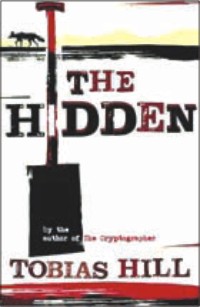|
Book Review
The Secret History of the Spartans
Kamila Shamsie
 |
The Hidden
by Tobias Hill
354, Faber |
What are we to make of a people whose society is divided into soldiers and captives, who kill all infants born with any "defect", whose very name has entered the English language as a synonym for austerity? Or, more to the point, what are we to make of young people in the third millennium who look back at those Spartans and see humanity at its most glorious?
Tobias Hill's fourth novel enters the rich territory of our engagement with the ancient, with spine-tingling results. It takes a while for the plot to reveal its animating principle, but from the start there is a feeling of unease and danger, coiled around Ben Mercer, a young academic who has fled his life in Oxford and sought escape in Greece. At first, it seems that what he wants to escape is the sight of his ex-wife with another man, but it soon becomes clear that there is something darker propelling him abroad, which emerges slowly during the visceral descriptions of Ben working at a meat grill near Athens.
There are novels in which the discovery of some terrible act by a character with whom we have grown to sympathise feels manipulative. Not so here. Rather, when we learn Ben's secret, our horror mirrors his at what he was capable of. And it lends to the novel an air of menace; of what else is he, and the other characters, capable?
These questions are pulled into focus following Ben's chance meeting with an Oxford acquaintance. Eberhard is taking part in an archaeological dig in Laconia, seat of ancient Sparta, and though he clearly regrets sharing this news, it doesn't stop Ben finding a way to join the dig. Here, he meets Eberhard's crowd, all brilliant, self-absorbed idealisers of ancient Sparta, disdainful of those they see as outsiders. Ben's desperation to be accepted by them, against the warning of the other members of the dig, captures perfectly the power of cliques.
Hill conveys both the sense of unity projected by the group - the word "phalanx" comes to mind - and the disparate personalities of its members: cold Eberhard, taciturn Max, nervy Jason, kleptomaniac Eleschen and the one to whom Ben is most drawn, enigmatic Natsuko. There are echoes of Donna Tartt's The Secret History here, but the novel doesn't feel derivative.
The darkness becomes more mysterious as Ben is drawn into the world of Eberhard and his cohort. Are they play-acting their admiration for the extremes of ancient Sparta or is there something more dangerous going on? Hill uses every element of setting - the mid-afternoon heat of the dig, the alcohol-fuelled evenings, the cries of jackals at night - to build momentum.
Early on, Eberhard refers to "our Age of Terror", one of the few explicit connections with the "war on terror". Like so much else here, most of the connections are merely hinted at, until it becomes apparent that apart from everything else that this novel is - a beautifully paced thriller, a meditation on loss, guilt, obsession - it is also one of the finest novels written so far about this, our age of terror. Hill doesn't write about Al-Qaida vs. America or Islam vs. the west, but about something altogether subtler and more profound -- extremism itself. And the excavation of ancient Sparta provides a perfect metaphorical setting; as Ben observes: "All extremisms are alike and in Sparta all are prefigured.”
Copyright
(R) thedailystar.net 2010
|

